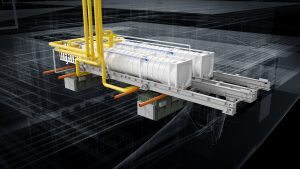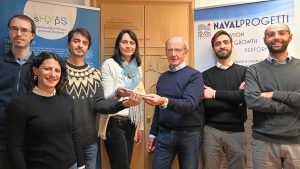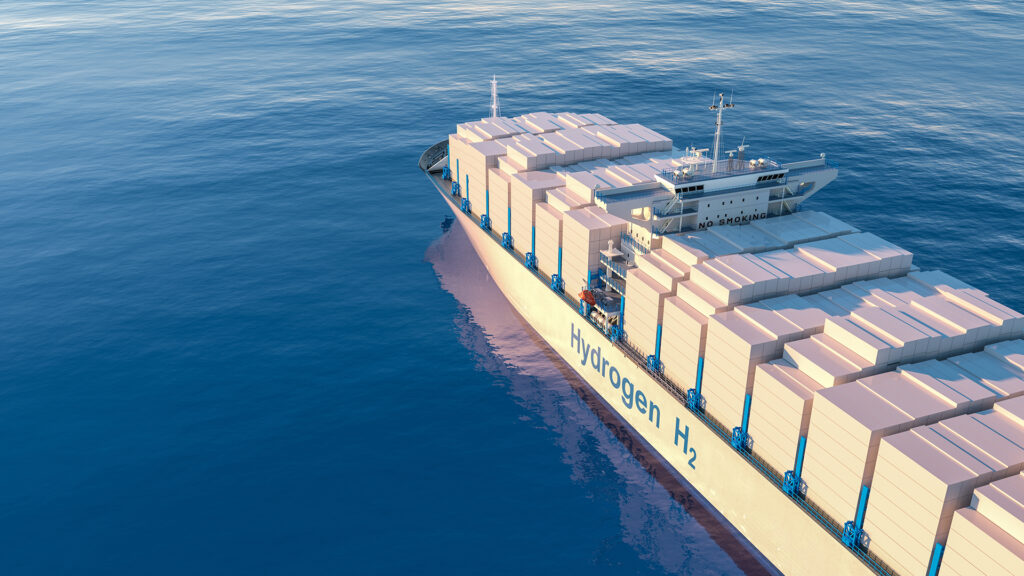Navalprogetti, a Trieste-based engineering company, is leading maritime innovation with the transition from fossil fuels to sustainable hydrogen technology onboard ships.
Navalprogetti, a Trieste-based engineering company, has been providing advanced design solutions to the maritime industry for half a century. The company was founded in 1975 and initially focused on marine design and general engineering services. In the 1980s, under the leadership of Silvio Stenta and Loris Koch, the company expanded into the oil and gas sector and was recognized for its technical expertise and customized engineering support to major industrial customers.
Over the past decade, we have undergone a gradual transformation. This change was driven by a generational change in leadership and the entry of new partners, Pierluigi Busetto and Christine Zurich, who had been with the company as naval architects since 2003. While continuing to serve the fossil fuel sector, Navalproghetti has diversified its research and development activities by exploring alternative energy sources, with a particular focus on hydrogen technology.
The transition from traditional energy systems to sustainable maritime propulsion reflects the broader changes taking place across the global shipping industry, where decarbonization has become a strategic priority.
Navalproghetti began working on developing low-emission fuel systems in 2012, starting with liquefied natural gas (LNG), which at the time was seen as a transitional solution. Based on that experience, the company has been focusing on hydrogen-based applications since 2019. The initial project was developed at a regional level and later expanded to include a European research initiative supported by both public and private stakeholders.

sHYpS project
One of the most important of these efforts is the sHYpS project, which aims to design and implement hydrogen energy generation systems onboard cruise ships. The project won first place in the innovation category at the Waterborne Awards in 2025 and was highly praised in the international maritime field. The system allows ships to operate using liquid hydrogen, which is vaporized and converted into electricity by high-efficiency fuel cells.
The system is capable of generating up to 6 megawatts of power and has been designed and integrated by Navalprogetti, including all auxiliary and safety systems required for onboard operations. This project is particularly noteworthy due to the size and class of vessels involved, as no comparable application has been implemented to date on cruise ships of this size. Operated by Viking Cruises, the ship will be able to cruise the Norwegian fjords for a full day with zero emissions, emitting only water vapor into the environment.

The sHYpS initiative involves 13 partners from six countries, combining expertise from shipbuilding, energy systems, research institutes, and engineering companies. A prototype hydrogen fuel cell has already been completed. Construction of the hydrogen storage tanks and tank connection spaces is expected to be completed by the end of 2025, with onshore trials to prove that they can be safely and reliably installed on board the ship, scheduled for November 2026, making the activity and outcome a commercial project in nature.
The promise of hydrogen
Working with liquid hydrogen presents complex technical challenges. The fuel must be stored at cryogenic temperatures of approximately -253°C, requiring advanced cryogenic systems and strict safety protocols. Despite these obstacles, hydrogen is increasingly being considered by industry stakeholders as a viable solution to reduce ocean emissions, particularly in specific use cases such as short-range navigation and port operations.
Navalproghetti reports growing interest in hydrogen-based systems from long-standing customers in the oil and gas sector, many of whom are now exploring the potential of alternative fuels to meet evolving regulatory and environmental standards. Although the maritime industry has not yet identified a single universal fuel for the future, several options are under active consideration, including ammonia and methanol.
Hydrogen is considered one of the safest alternative fuels for passenger ships because it burns cleaner and is less toxic than other fuels. However, its use on long-distance routes is still limited by current storage and distribution constraints. Research is underway to address these challenges, and Navalprogetti is actively contributing to efforts aimed at expanding the practical range of hydrogen fuel systems.
Hydrogen propulsion may not yet be ready for deep-sea commercial transportation, but it already offers attractive advantages in other scenarios. One potential application is to provide clean onboard power during port calls, a solution that can significantly reduce emissions in urban port areas.
With continuous investment in research and a clear commitment to innovation, Navalproghetti is positioning itself as a key player in the transition to more sustainable maritime transport.
This article will also be published in the quarterly magazine issue 24.
Source link

